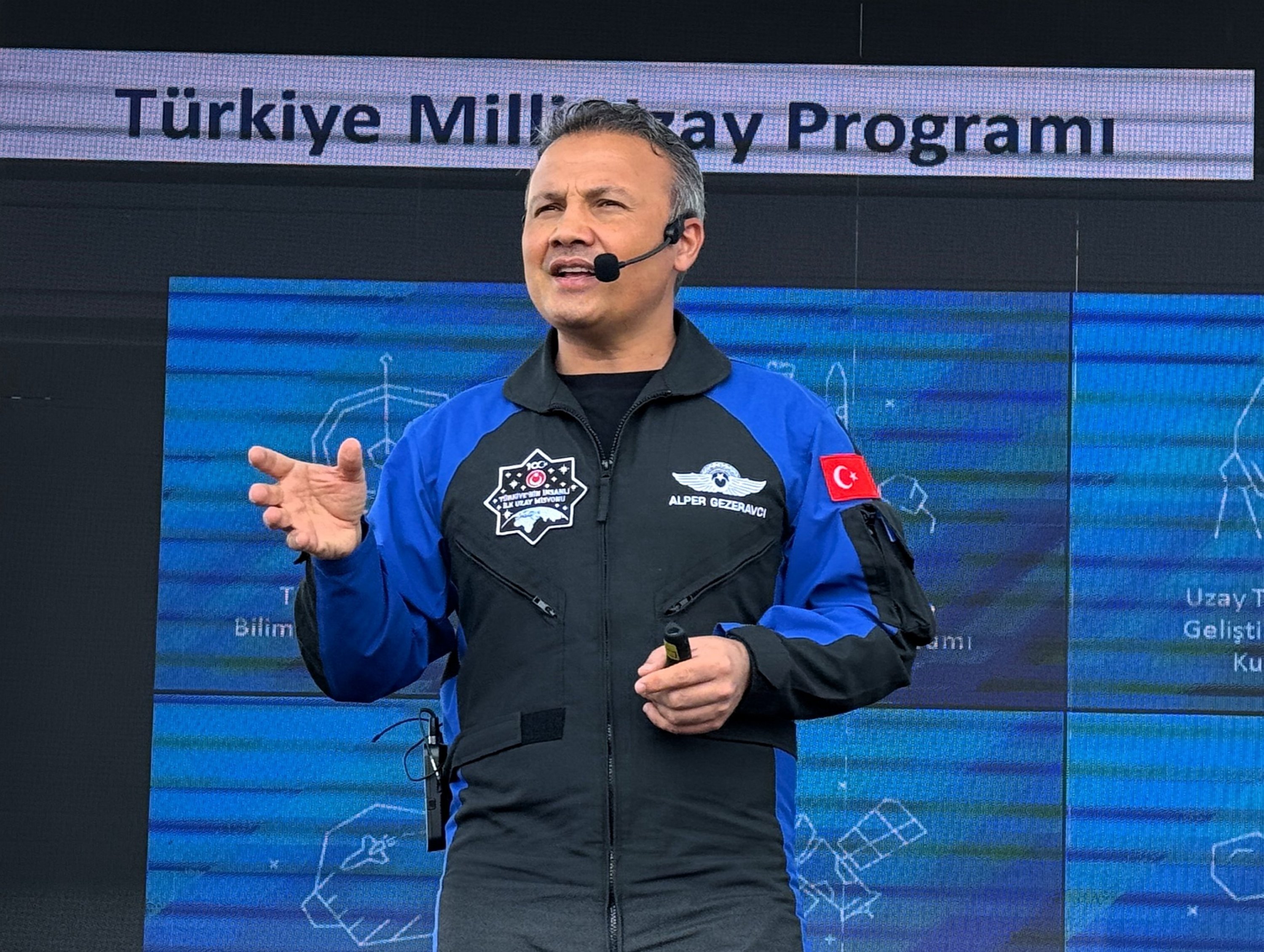© Turkuvaz Haberleşme ve Yayıncılık 2025
Türkiye's technology and defense landscape last year was characterized by a series of key developments focusing on self-sufficiency, such as advancements in quantum and AI computing, enhancing the push in the space field, and milestones such as the maiden flight of homegrown fighter jet.
These developments not only enhance the country's technological sovereignty but also position it as an emerging player in global tech innovation on the international scale.
As a recent significant step, Türkiye’s first quantum computer was commissioned in cooperation with the defense firm Aselsan and the TOBB University of Economics and Technology in Ankara in November.
The quantum computer will enable the country to build its quantum computer market.
Türkiye's homegrown fighter jet, Kaan, conducted its maiden test flight on Feb. 21.
The first fifth-generation fighter jet, manufactured domestically, aims to replace the Turkish army's aging fleet.
Kaan makes Türkiye one of a few countries to own this technology, with the aircraft for which the project began in 2016 rolled out in March 2023.
Meanwhile, Baykar's new combat drone, Bayraktar TB3, made its public debut in the country's premier technology event, Teknofest, on Oct. 2, 2024.
The TB3 also entered world aviation history by becoming the first uncrewed aerial vehicle (UAV) to land and take off from a ship with a short runway.
On the other hand, Baykar's purchase of Italian aviation giant Piaggio Aerospace was approved officially by Italian authorities on Dec. 27, 2024.
Moreover, Türkiye's homegrown light attack jet Hürjet reached speeds of Mach 0.9 at an altitude of 30,000 feet on July 11, 2024.
Hürjet, which made its maiden flight last year, is the fruit of an advanced jet trainer and light attack aircraft project that was launched in 2017 by the Turkish Aerospace Industries (TAI).
One of the most important developments of the year was the inclusion of the long-range regional air defense system SIPER-1, the deterrent power of the planned air defense system Steel Dome, in the inventory of the Turkish Armed Forces (TSK).
At the same time, the exports of defense and aerospace industry products rose to $5.76 billion in the 11-month period, breaking a new record.
The space field was one of the most important areas for the country in 2024 when it carried out its first crewed mission.
Col. Alper Gezeravcı and three other astronauts' journey to the International Space Station (ISS) began on Jan. 19, 2024.
Launching from SpaceX's facility in Cape Canaveral, Florida, on a Falcon 9 rocket of private space exploration company SpaceX, the crew docked at the ISS on Jan. 21.
Gezeravcı and his three crewmates from Spain, Italy and Sweden conducted over 30 scientific experiments and demonstrations on the ISS as part of the Ax-3 mission.

The Ax-3 mission was led by Michael Lopez-Alegria, representing the U.S. and Spain, while the crew also included Walter Villadei from the Italian Air Force as the pilot and Marcus Wandt of Sweden, representing the European Space Agency.
Gezeravcı also conducted 13 scientific researches during his 14-day stay on the ISS.
SpaceX's Dragon Capsule, carrying four space travelers, returned to the Earth on Feb. 12.
Türkiye's other important space mission was in June last year.
Virgin Galactic's VSS Unity, carrying a six-person Galactic 07 mission team, including the second Turkish space traveler Tuva Cihangir Atasever, successfully took off for a suborbital space flight from the U.S. state of New Mexico on June 8.
Atasever was a research astronaut aboard the spacecraft's final flight, designated Galactic 07.
Moreover, Türkiye's first homegrown communications satellite, Türksat 6A, was successfully launched from the U.S. state of Florida by SpaceX's Falcon 9 rocket on July 9.
The 4.25-ton satellite was designed to operate at the 42 degrees East orbital position and its service life will be 15 years in orbit.
It covers Türkiye, Europe, North Africa, the Middle East and Asia and serves 4.5 billion people in the TV, radio and emergency communications sectors.
Last year, we also saw a significant boost in investments in electric vehicle technology and several events focused on Türkiye's thriving defense sector.
China’s BYD, the world's largest electric vehicle producer, signed a deal with the Turkish Industry and Technology Ministry to invest $1 billion in Türkiye on July 9.
The firm is expected to build a factory in Türkiye with a capacity for manufacturing 150,000 vehicles, as well as a mobility and R&D center with a total investment of $1 billion, while it is expected to begin production at the end of 2026 and create 5,000 jobs directly in the country.
The Brazilian energy and automation firm WEG decided to establish a factory in Türkiye with a $29 million investment to produce industrial gearboxes, a power transmission device used in mechanical systems, announced in December.
Türkiye's premier technology and aerospace event, Teknofest, opened its doors for visitors in the southern city of Adana in October last year.
The five-day event hosted feature competitions, air shows, exhibitions and workshops and welcomed over 1 million visitors.
The event is held in various Turkish cities in even years and in the metropolis of Istanbul in odd years.
The Adana edition is also the ninth edition of the event in Türkiye and the 10th when its international version, Azerbaijan, is included.
This year, the event will be held in the Turkish Republic of Northern Cyprus (TRNC).
Furthermore, the SAHA Expo, a significant Turkish defense event organized by the Istanbul Defense and Aerospace Cluster Association (SAHA), took place at the Istanbul Expo Center in October.
The event showcased advanced defense products from Türkiye and 120 foreign countries.
The five-day event involved 1,478 firms, 178 foreign buying delegates, and 312 officials, 25 of whom were ministers.
